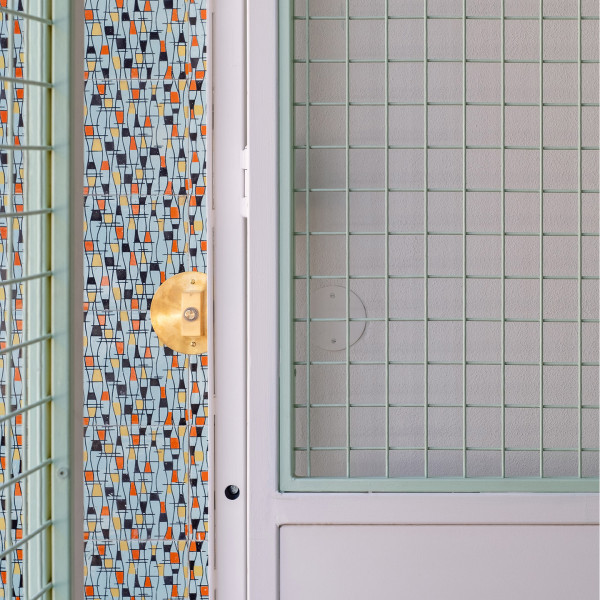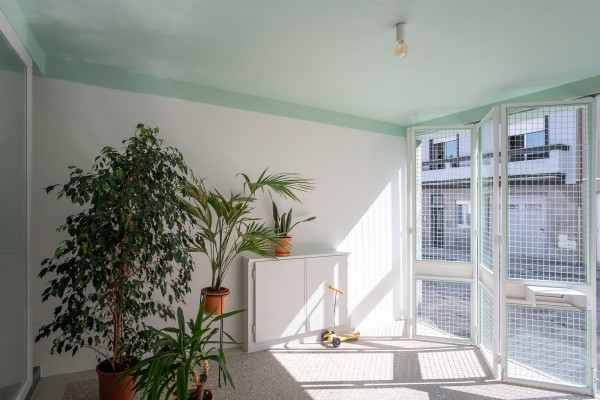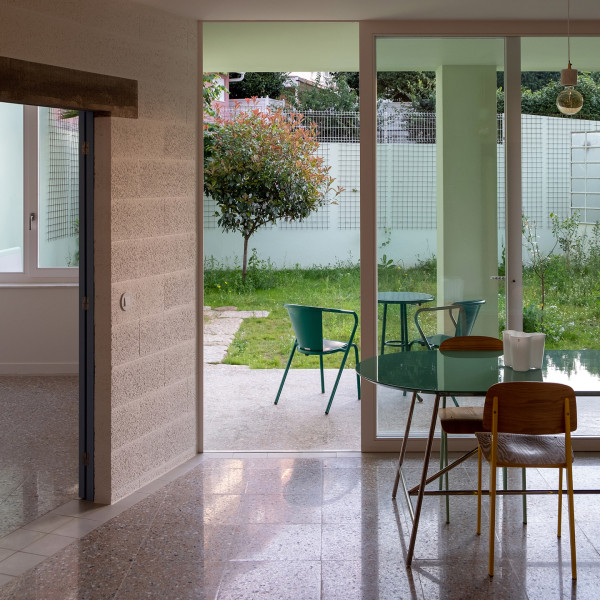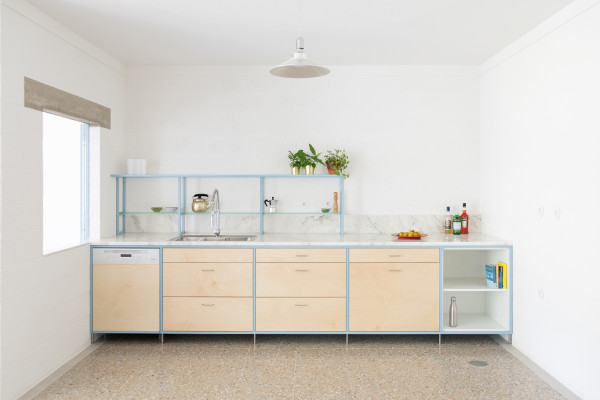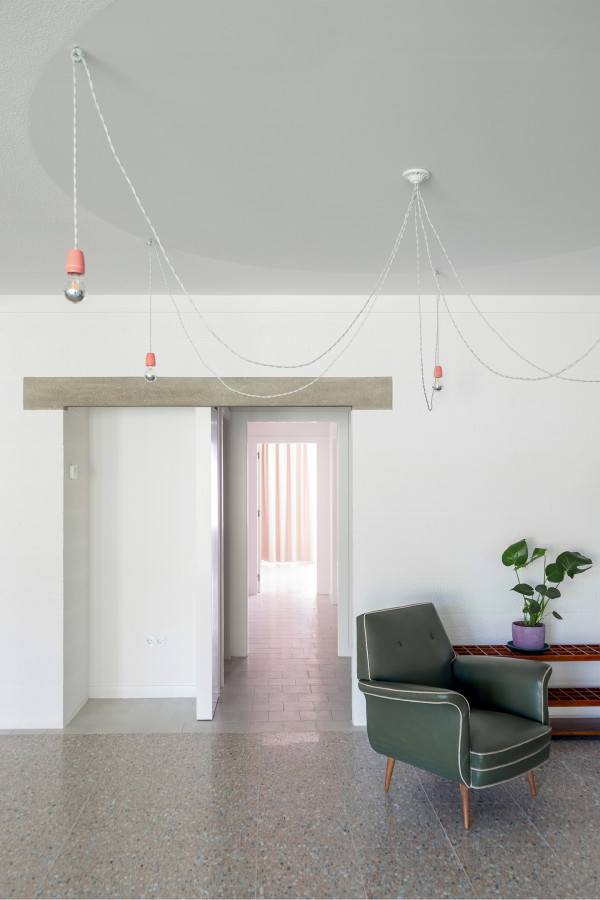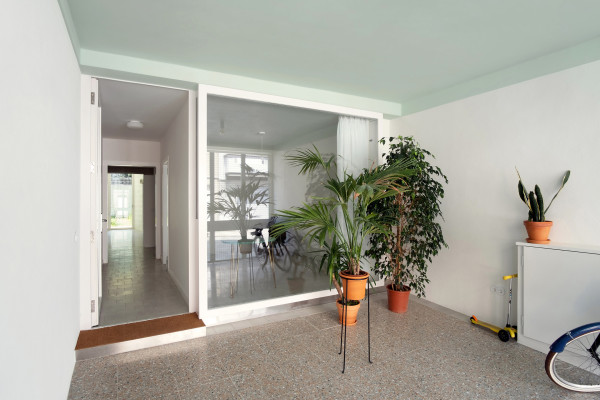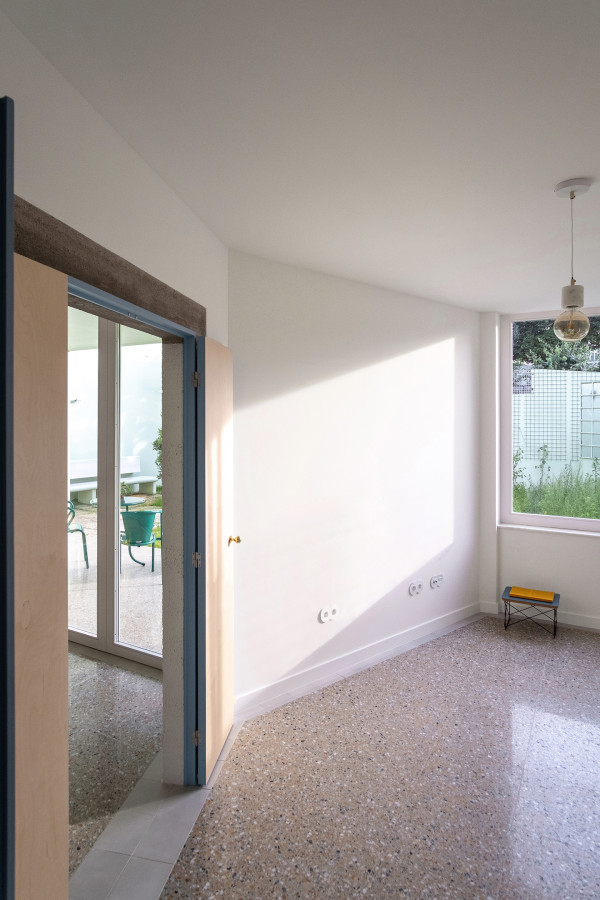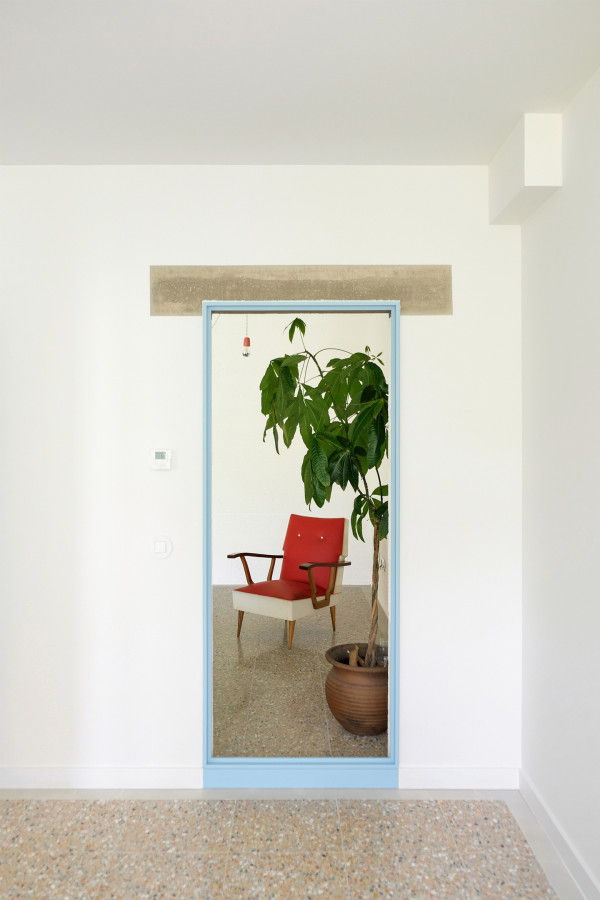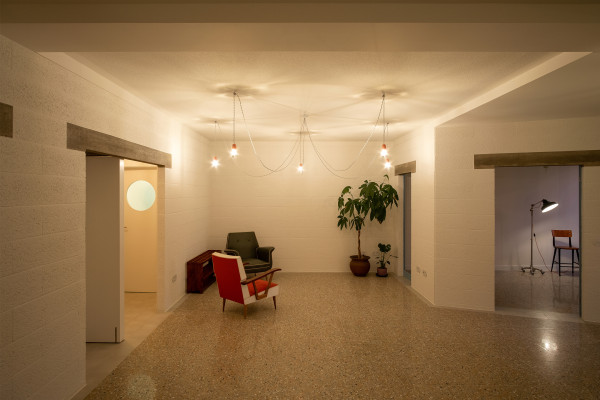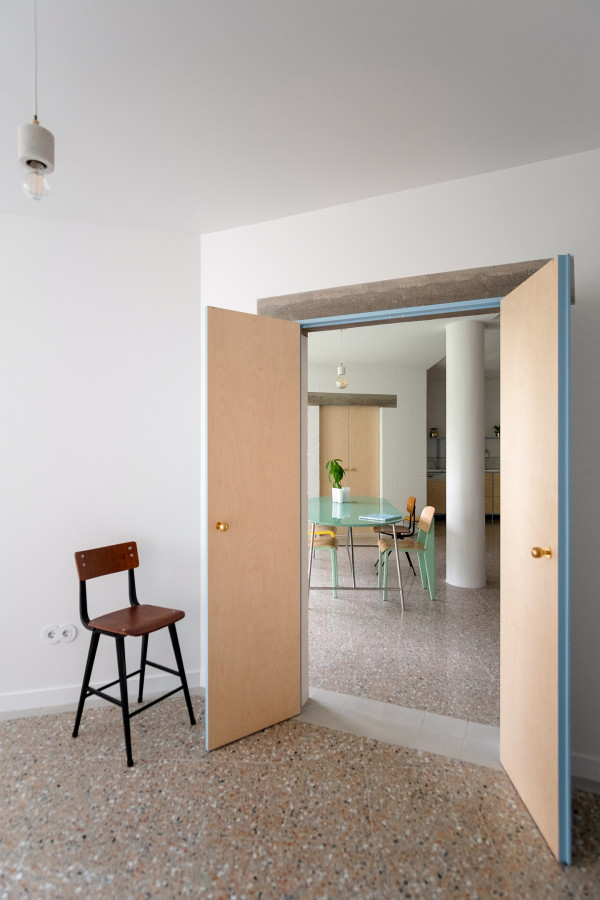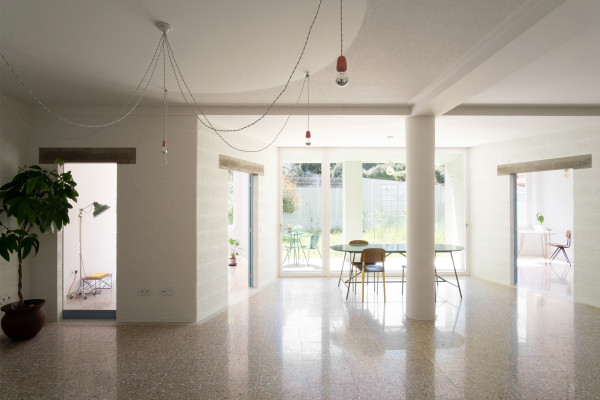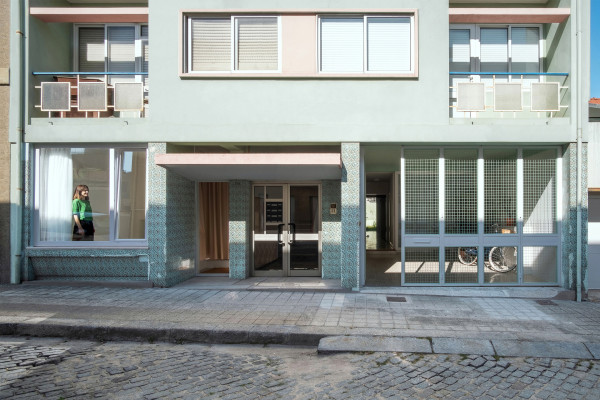casa no rés do chão
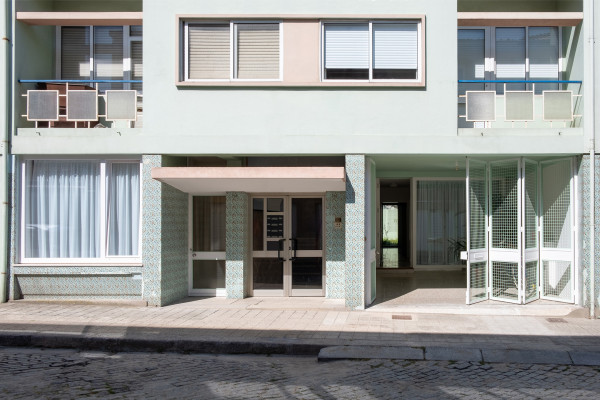
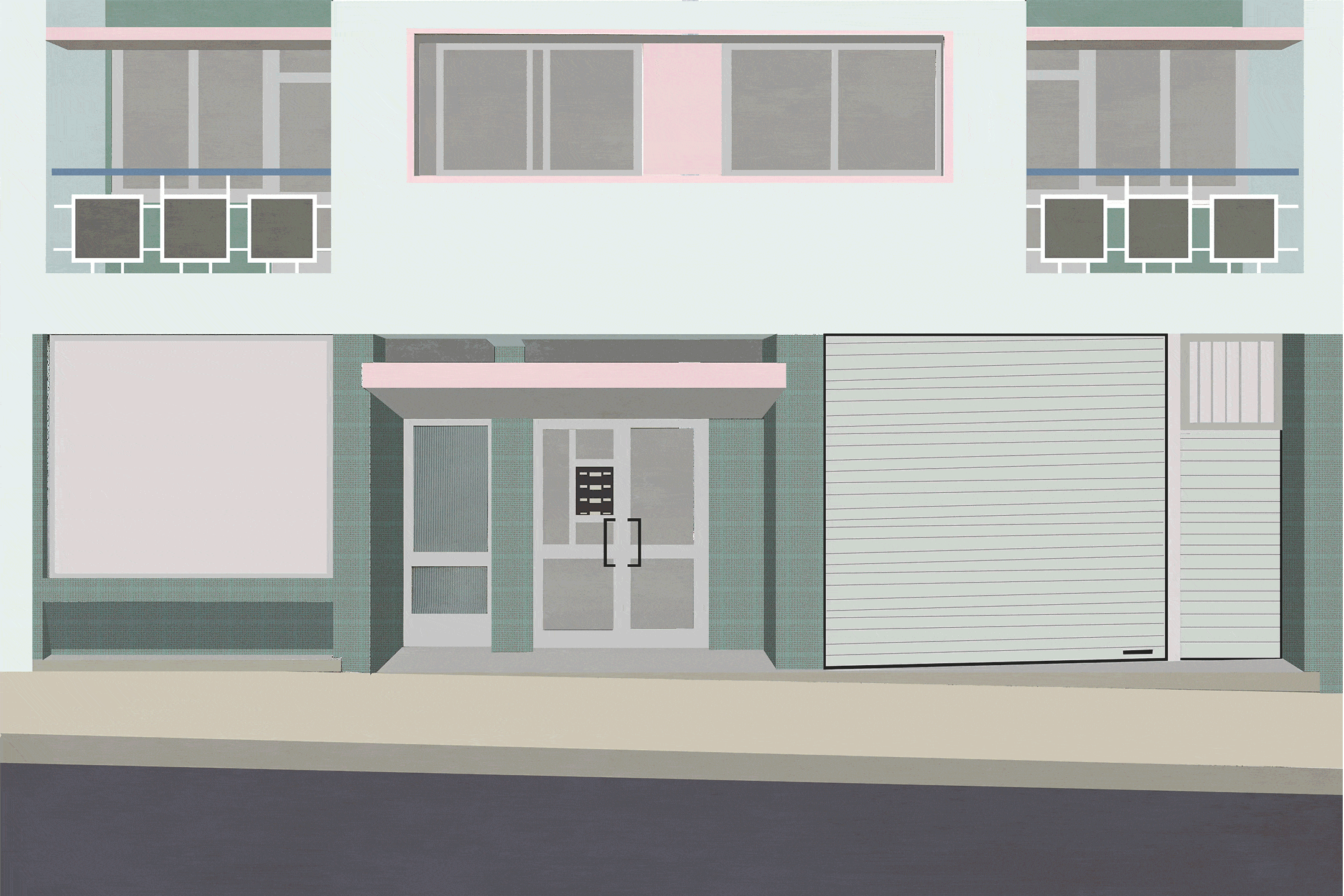
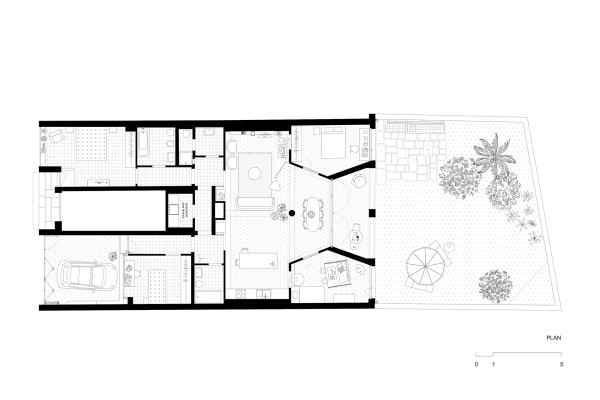
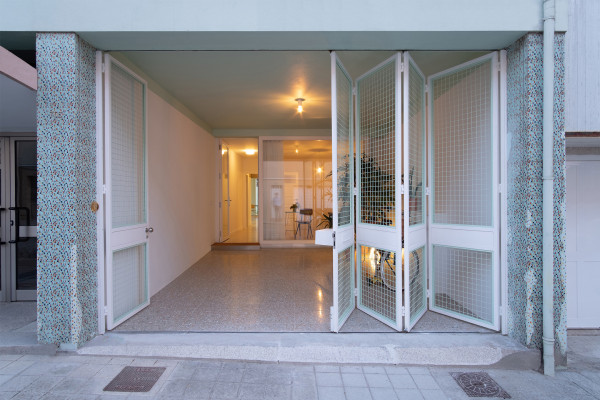
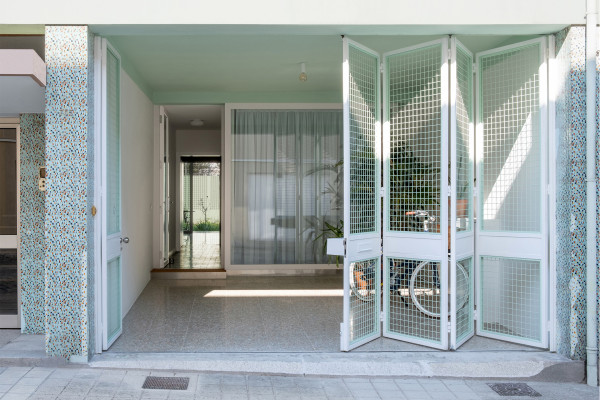
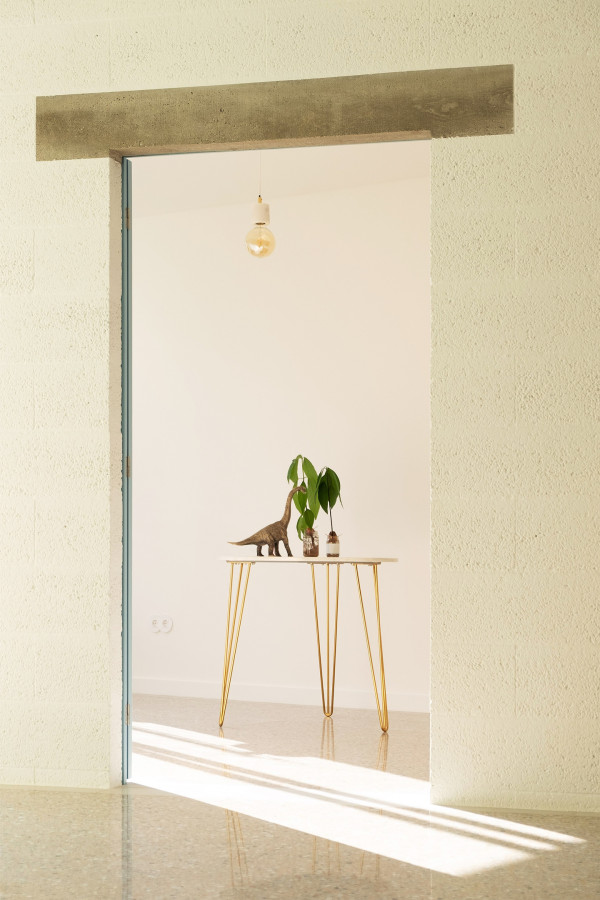
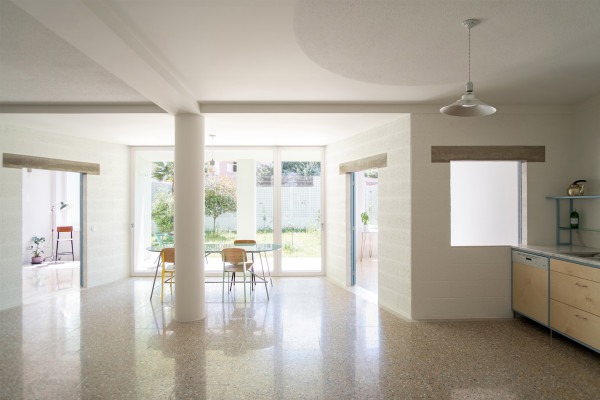
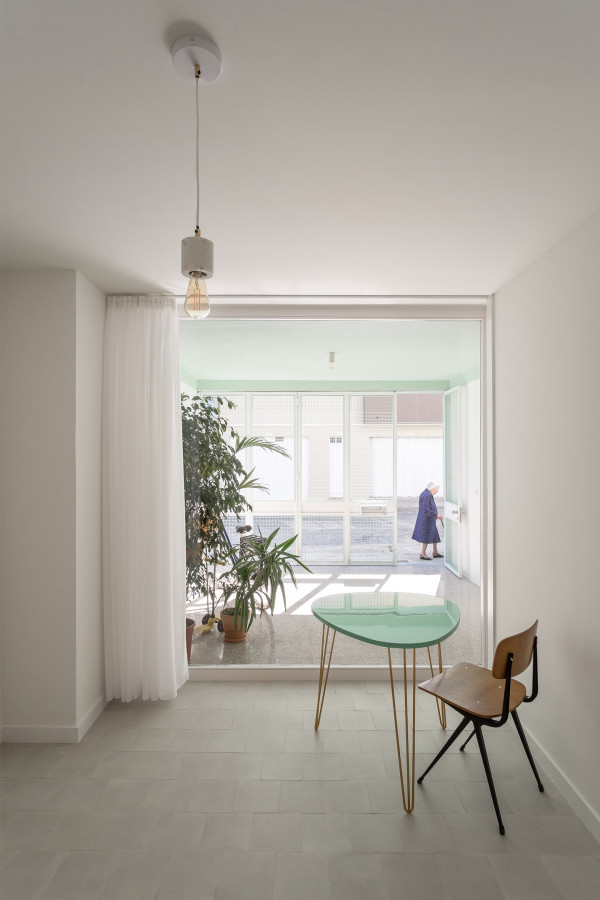
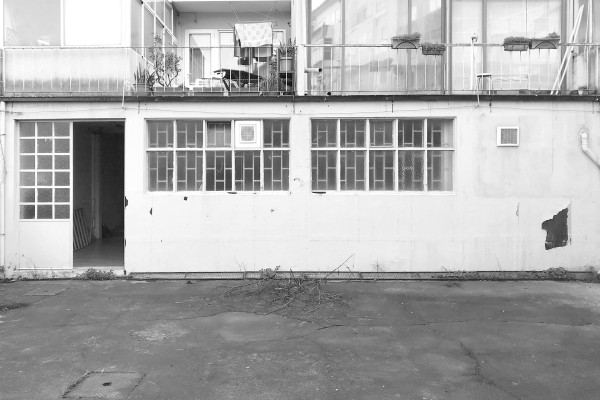
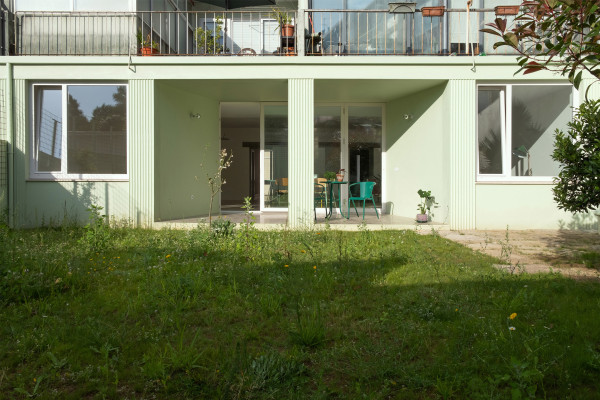
A oitoo foi convidada a transformar um desses espaços subutilizados — um antigo armazém com frente de rua e logradouro — num projeto habitacional. Apesar do estado degradado, o espaço apresentava grande potencial: áreas amplas, planta aberta, pé-direito elevado e um logradouro pronto a ser reinventado.
O resultado é uma habitação passiva de quatro quartos, que recorre à ventilação cruzada e ao aquecimento por piso radiante para conforto e eficiência. O projeto explora temas de arquitetura de interiores: mediação entre público e privado, organização do espaço doméstico, gestão da luz, escolha de materiais e aproveitamento do pé-direito para criar uma verdadeira “topografia interior”.
O logradouro, repensado como “sala exterior”, prolonga a habitação e reconecta a casa à cidade. A execução de carpintarias, caixilharias e serralharias à medida, realizada por artesãos locais, reforça a relação com o contexto. A intervenção mostra como pisos térreos esquecidos podem tornar-se espaços domésticos generosos e bem concebidos, devolvendo vitalidade à vida urbana contemporânea.
- Ano
- 2019 – 2021
- Localização
- porto / portugal
- Tipologia
- residencial , reuso adaptativo
- Estado
- construído
- Área
- 190 (área de construção) / 340 (área do lote) m2
- Cliente
- privado
- Créditos fotograficos
- attílio fiumarella
